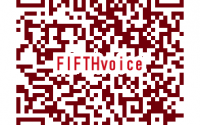witness to the rain kimmerer
I'm so glad I finally read this book for the Book Cougars/Reading Envy joint readalong. Crnica de un rescate de enjambre de abejas silvestresanunciado. I'm Melanie - the founder and content creator of Inspired Epicurean. What are ways we can improve the relationship? Witness to the rain Published December 15, 2017 Title Witness to the rain Authors: Kimmerer, Robin W. Secondary Authors: Fleischner, Thomas L. Publication Type Book Section Year of Publication: 2011 Publisher Name: Trinity University Press Publisher City: San Antonio, TX Accession Number: AND4674 URL When you have all the time in the world, you can spend it, not on going somewhere, but on being where you are. Consider the degree of attention you give to the natural world. This question was asked of a popular fiction writer who took not a moment's thought before saying, my own of course. tis is how they learned to survive, when they had little. We've designed some prompts to help students, faculty, and all of the CU community to engage with the 2021 Buffs OneRead. Do you consider them inanimate objects? Kimmerer has often pointed out the importance of direct experience with the land and other living things. Algae photosynthesizes and thus produces its own nutrients, a form of gathering, while fungi must dissolve other living things in order to harness their acids and enzymes, a form of hunting. Facing the Anthropocene: Fossil Capitalism and the Crisis of the Earth System, Karl Marx's Ecosocialism: Capital, Nature, and the Unfinished Critique of Political Economy, The Divide: A Brief Guide to Global Inequality and its Solutions, The Darker Nations: A People's History of the Third World, Debt - Updated and Expanded: The First 5,000 Years, Sacred Economics: Money, Gift, and Society in the Age of Transition, Less is More: How Degrowth Will Save the World, Another Now: Dispatches from an Alternative Present, Talking to My Daughter About the Economy: or, How Capitalism Works - and How It Fails, The Invisible Heart: Economics and Family Values, Governing the Commons: The Evolution of Institutions for Collective Action, Social Reproduction Theory: Remapping Class, Recentring Oppression, Revolution at Point Zero: Housework, Reproduction, and Feminist Struggle. It was heartbreaking to realize my nearly total disconnection from the earth, and painful to see the world again, slowly and in pieces. In fact, these "Braiding Sweetgrass" book club questions are intended to help in the idea generation for solutions to problems highlighted in the book, in addition to an analysis of our own relationship with our community and the Earth. I also loved learning about the plants she mentions, and feel quite relieved to know that the proper pronunciation of pecan is peh-cahn, and not at all related to a way one might relieve themselves in the woods. When Kimmerer moves herself and her daughters to upstate New York, one of the responsibilities that she decides to take is to provide her daughters with a swimmable pond. "I close my eyes and listen to the voices of the rain. Detailed explanations, analysis, and citation info for every important quote on LitCharts. . Its not about wisdom. When was the last time you experienced a meditative moment listening to the rain? In: Fleischner, Thomas L., ed. Throughout the three-day field trip, Kimmerer was anxious to help the students forge a greater connection with nature and moved through a checklist of ecological sights without evoking much awe from her captive audience. Rare, unless you measure time like a river. (USA), 2013. PDF downloads of all 1699 LitCharts literature guides, and of every new one we publish. Kimmerer describes how the people of the Onondaga Nation begin every gathering with what is often called the "Thanksgiving Address.". What do you consider the power of ceremony? If there is one book you would want the President to read this year, what would it be? October 6, 2021 / janfalls. Give your attention to the plants and natural elements around you. eNotes Editorial. The second date is today's 2) Look back over the introductory pages for each section"Planting Sweetgrass", "Tending Sweetgrass", Picking Sweetgrass", "Braiding Sweetgrass"for each of these sections Kimmerer includes a short preface statement. A deep invisible river, known to roots and rocks, the water and the land intimate beyond our knowing. From time to time, we like to collect our favourite quotes, sayings, and statistics about water and share them with readers. We are discussing it here: Audiobook..narrated by Robin Wall Kimmerer, Powerful book with lots of indigenous wisdom related to science, gratitude, and how we relate to the land. The old forest, a result of thousands of years of ecological fine-tuning, and home to an incredible variety of life forms, does not grow back by itself; it has to be planted. In this chapter, Kimmerer discusses Franz Dolps attempts to regenerate an old-growth forest. Kimmerer explores the inextricable link between old-growth forests and the old-growth cultures that grew alongside them and highlights how one cannot be restored without the other. I don't know how to talk about this book. In Braiding Sweetgrass, Kimmerer . If so, how can we apply what we learn to create a reciprocity with the living world? What kind of nostalgia, if any, comes to mind when you hear the quote Gone, all gone with the wind?. All rights reserved. The second is the date of Privacy | Do not sell my personal information | Cookie preferences | Report noncompliance | Terms of use| 2022 Autodesk Inc. All rights reserved, Braiding Sweetgrass, Indigenous Wisdom, Scientific Knowledge and the Teaching of Plants. As for the rest of it, although I love the author's core message--that we need to find a relationship to the land based on reciprocity and gratitude, rather than exploitation--I have to admit, I found the book a bit of a struggle to get through. These people are beautiful, strong, and clever, and they soon populate the earth with their children. This idea has been mentioned several times before, but here Kimmerer directly challenges her fellow scientists to consider it as something other than a story: to actually allow it to inform their worldviews and work, and to rethink how limited human-only science really is. Braiding Sweetgrass. Did the Depression-era reference hit home with you? Listening to rain, time disappears. Her use of vibrant metaphor captures emotion in such a way that each chapter leaves us feeling ready to roll up our sleeves and reintroduce ourselves to the backyard, apartment garden, or whatever bit of greenspace you have in your area. Wall Kimmerer draws on her own life experiences and her half North American Indian and half white settler ancestry. So I stretch out, close my eyes, and listen to the rain. Finally, the gods make people out of ground corn meal. In addition to this feature event, Sweet Briar is hosting a series of events that complement . Against the background hiss of rain, she distinguishes the sounds drops make when they fall on different surfaces, a large leaf, a rock, a small pool of water, or moss. Read the Epilogue of Braiding Sweetgrass, Returning the Gift. Our, "Sooo much more helpful thanSparkNotes. Copyright 2022 Cook'd Pro on the Cook'd Pro Theme, Banana Tahini Cookies (Vegan, Gluten Free), Blackberry Strawberry Banana Smoothie (Vegan, Gluten Free). Cheers! The citation above will include either 2 or 3 dates. Begun in 2011, the project, called Helping Forests Walk, has paired SUNY scholars with local Indigenous people to learn how to . She is the author of numerous scientific articles, and the book Gathering Moss: A Natural and Cultural History of Mosses. She is Potawatomi and combines her heritage with her scientific and environmental passions. Kimmerer often muses on how we can live in reciprocity with the land, and gratitude, as our uniquely human gift, is always an important part of this. How does one go about exploring their own relationship with nature? Robin Wall Kimmerer is a mother, scientist, decorated professor, and enrolled member of the Citizen Potawatomi Nation. Her first book, published in 2003, was the natural and cultural history book Gathering . Note what the gods valued most in the people of corn: their ability to be grateful and to live in community with each other and the earth itself. This book has taught me so much, hopefully changed me for the better forever. Noviolencia Integral y su Vigencia en el rea de la Baha, Action to Heal the (Titanic)Nuclear Madness, Astrobiology, Red Stars and the New Renaissance of Humanity. Braiding Sweetgrass addresses a tapestry of relationships that represent a larger, more significant relationship between humans and the environment we call home. Dr. Kimmerer does a fantastic job of shining a spotlight on the intersectionality of traditionally divergent spheres; most specifically, Western scientific methods and Indigenous teachings. Did you find the outline structure of the chapter effective? "Witness to the Rain" is the final chapter of the "Braiding Sweetgrass" section of RWK's beautiful book. ", University of Colorado Boulder Libraries, Buffs One Read 2022-2023: Braiding Sweetgrass, Braiding Sweetgrass: Indigenous Wisdome Scientific Knowledge and the Teaching of Plants. It gives us knowing, but not caring. Kimmerer lives in Syracuse, New York, where she is a SUNY Distinguished Teaching Professor of Environmental Biology and the founder and director of the Center for Native Peoples and the Environment. Robin Wall Kimmerer . Braids plated of three strands, are given away as signs of kindness and gratitude. everything you need to sharpen your knowledge of Braiding Sweetgrass. 2023


